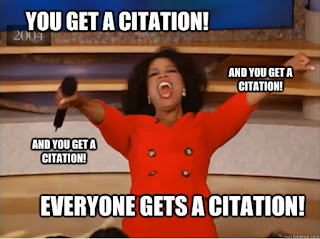Plagiarism is dead? Production of scholarly work, and other academic thoughts

The other day I was reading an article on Hybrid Pedagogy titled Plagiarism is Dead; Long Live the Retweet: Unpacking an Identity Crisis in Digital Content. I was an interesting article, which had me nodding in agreement in some areas, and induced an eyebrow raising expressions of curiosity in other parts. I thought I would pull out some quotes, as I've done in other readings, and react to them, and in some cases respond. It's an interesting article, and it's food for thought. I would say that it also pairs well with the Times Higher Education article that Peer Review is not as old you think. One of the first things that jumped out to me what the following. It should be noted that any emphasis in these quotes is my own: It is long since time for academic publishers and tenure and promotion boards to re-examine our “business as usual” in the light of ubiquitous knowledge sources and publication tools. Given a multiplicity of wikipedias, what const...

